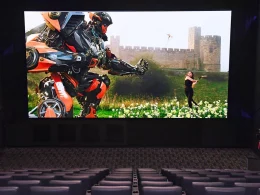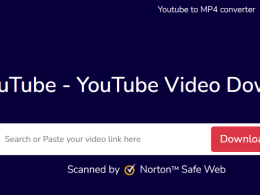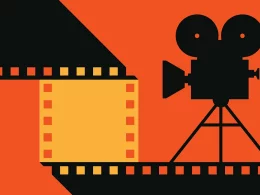Introduction
In today’s world, social media is a powerful tool for musicians to promote their music. In the past, getting music out to the public relied heavily on radio stations, TV shows, and record labels. Now, social media platforms like Instagram, Facebook, TikTok, and YouTube allow artists to connect directly with their fans and share their music. This article will explain why social media is so important for music marketing and how musicians can use it effectively.
Why Social Media Matters for Music Marketing
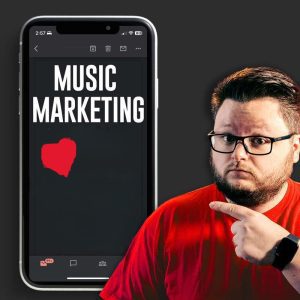
Social media has completely changed the way we discover and listen to music. Here are some key reasons why social media is so important for musicians:
- Direct Connection with Fans: Social media lets musicians talk directly to their fans. Fans can comment, share, and ask questions, making them feel closer to the artist. This connection helps build a loyal fan base, which is essential for a successful music career.
- Global Reach: Social media can reach people all over the world. Musicians can share their music with fans in different countries, something that would be hard to do without social media. A song can go viral and reach millions of people globally.
- Affordable Promotion: Traditional promotion methods like TV ads or billboards are expensive. Social media offers a much cheaper alternative, where musicians can post videos, photos, or run small ads to promote their music without spending a lot of money.
- Discovering New Music: Social media makes it easier to discover new music. Platforms like TikTok help songs go viral through challenges and trends. Hashtags and influencer shoutouts can make it easier for new artists to gain visibility.
How to Build a Strong Online Presence

To be successful in music marketing, artists need to build a strong presence online. Here are a few ways musicians can do this:
- Post Regularly: It’s important to post often on social media. Whether it’s a song teaser, a personal story, or behind-the-scenes content, regular posts keep fans engaged and remind them about the artist’s work.
- Engage with Fans: Respond to comments and messages from fans. The more an artist interacts with their followers, the more loyal those fans will become. Sharing fan content or asking for feedback can make fans feel special.
- Collaborate with Others: Working with other artists or influencers can help musicians reach a wider audience. Collaborations allow fans of different artists to discover new music, growing the artist’s fan base.
- Use Analytics: Social media platforms offer tools that show how well posts are performing. Artists can use this information to see what content their fans like and when is the best time to post.
The Power of Viral Content
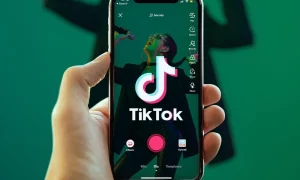
Sometimes, a song or video can go viral on social media. For example, TikTok has launched many songs to fame, just by users creating videos with the music. Viral content is unpredictable, but it can help an artist’s music reach millions of people quickly. Creating content that is fun, relatable, or tied to a trend can increase the chances of going viral.
The Role of Live Streaming for Musicians
Live streaming is an exciting way for musicians to engage with fans in real time. Platforms like Instagram, Facebook, and YouTube allow artists to perform live for their followers, no matter where they are. Live streaming gives fans a chance to watch performances, ask questions, and interact with the artist directly. This type of connection makes fans feel like they are part of the experience, and it can help musicians build a stronger, more loyal fan base.
The Power of Hashtags in Music Marketing
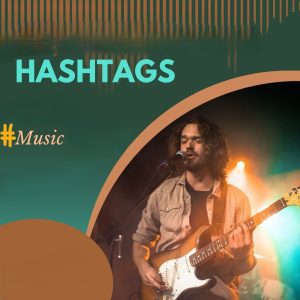
Hashtags are a powerful tool for musicians on social media. When artists use hashtags in their posts, they can make their content easier to find. Fans who are interested in specific music genres or trends can search for hashtags to discover new songs and artists. Using popular or trending hashtags can also help a post go viral, increasing its reach and visibility. Musicians can also create their own unique hashtags to build a community around their music.
The Influence of Fan Content on Music Promotion
Fan-created content plays an important role in music marketing. When fans share their own videos, photos, or posts about an artist’s music, it can spread the song to new audiences. Many artists encourage their fans to create content by starting challenges or sharing behind-the-scenes moments. This fan-driven content can be more authentic and trustworthy, as fans are often more likely to share their favorite music with their followers. It’s a great way for artists to gain exposure and build a stronger connection with their audience.
Social Media Ads and Their Effectiveness for Music Marketing
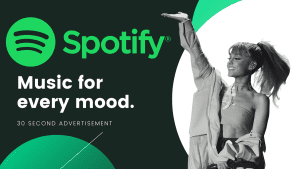
Social media ads are another way musicians can promote their music. Platforms like Facebook and Instagram allow artists to pay for ads that target specific groups of people. For example, musicians can target their ads to people who like similar music or who follow certain artists. These ads can be a great way to reach a larger audience, especially if the artist is just starting out. Though it requires a budget, social media ads can be an effective tool for boosting an artist’s visibility and growing their fan base.
How to Use Social Media for Music Releases
When releasing new music, social media is the perfect place to build excitement. Artists can share teasers, countdowns, or behind-the-scenes content to get fans excited about the release. Platforms like Instagram and Twitter are great for posting updates, while YouTube is perfect for sharing the official music video. By using social media to promote a release, musicians can create buzz and make sure that fans are ready to listen when the song or album drops. It’s a great way to generate interest before and after the release.
The Benefits of Social Media for Independent Artists
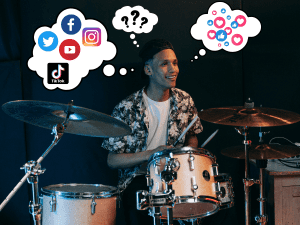
For independent musicians, social media is especially important. Without the backing of a major record label, social media allows artists to promote their music and build a fan base on their own. Social media platforms are free and offer powerful tools for sharing content, engaging with fans, and promoting music. Independent artists can also use social media to connect with other musicians, collaborate on projects, and grow their networks. With the right strategy, social media can level the playing field and help independent artists find success in the music industry.
The Impact of Social Media on Concert Promotion
Social media is a great tool for promoting concerts and live events. Musicians can use platforms like Twitter, Facebook, and Instagram to share concert dates, ticket links, and event details with fans. By creating posts, videos, and stories, artists can keep their fans informed and excited about upcoming shows. Social media also allows artists to share live concert moments, making fans feel like they are part of the experience, even if they can’t attend the event in person.
The Importance of Consistency in Social Media Posts
For musicians, consistency is key when it comes to social media. Posting regularly keeps fans engaged and ensures that the artist stays visible in their followers’ feeds. Musicians don’t have to post every day, but they should aim to share content often enough to maintain interest. This could include new music updates, personal moments, or fan interactions. By staying consistent, artists can build a strong presence and keep their fans excited about their music.
Using Social Media to Showcase Music Videos and Performances
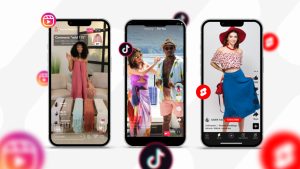
Music videos and live performances are important ways to showcase an artist’s work. Social media platforms like YouTube, Instagram, and TikTok are great for sharing these videos with a wide audience. Posting clips from music videos or live performances helps fans get a better sense of the artist’s style and creativity. It also gives new listeners a chance to discover music through visual content. Videos are a powerful way to connect with fans and share a deeper experience beyond just the music.
Challenges in Social Media Music Marketing
While social media is powerful, there are challenges. One of the biggest issues is the competition. Many artists are posting every day, so it can be hard to stand out. Also, social media platforms change their rules and algorithms often, making it harder to get noticed without spending money on ads.
Additionally, managing multiple social media accounts can be time-consuming. For independent musicians, it can be difficult to find time for posting regularly and interacting with fans. There’s also the risk of receiving negative comments or online criticism, which can affect an artist’s confidence.
The Future of Social Media in Music Marketing

Looking ahead, social media will continue to be crucial for musicians. New platforms may emerge, and existing ones will keep evolving. Musicians will need to stay creative and adaptable, using live streaming, virtual concerts, and collaborations with influencers to reach their fans.
As technology improves, we may also see more exciting ways to connect with fans, such as virtual concerts and music experiences using augmented or virtual reality.
Popular Social Media Platforms for Music Promotion
Different social media platforms offer different features that can help musicians promote their music. Here’s a look at some of the best platforms for music marketing:
| Platform | Best For | Key Features |
|---|---|---|
| Sharing visuals, engaging with fans | Stories, Reels, IGTV, live streams | |
| TikTok | Viral music discovery | Short videos, trends, challenges |
| YouTube | Sharing music videos and performances | Music videos, live streams, behind-the-scenes |
| Quick updates, engaging with followers | Tweets, hashtags, polls | |
| Connecting with fans, event promotion | Pages, groups, event sharing | |
| Spotify | Music streaming and playlist promotion | Playlists, music updates, new releases |
Comparing Traditional vs. Social Media Music Marketing
Here’s a quick comparison between traditional music marketing and social media marketing:
| Aspect | Traditional Marketing | Social Media Marketing |
|---|---|---|
| Cost | High (TV ads, radio) | Low to moderate (social media ads) |
| Reach | Local or national | Global reach, no limits |
| Engagement | Limited interaction with fans | Direct, real-time interaction with fans |
| Speed | Slow (months of preparation) | Fast (instant sharing and promotion) |
| Targeting | Broad, general audience | Specific targeting based on interests |
| Campaign Duration | Long-term (months or years) | Short-term (depends on trends) |
Conclusion
Social media has become essential for music marketing. It helps musicians connect directly with fans, promote their music affordably, and reach a global audience. By using platforms like Instagram, TikTok, and YouTube, artists can grow their fan base, increase music discovery, and boost their careers. Despite the challenges, such as competition and time commitment, the benefits of using social media for music marketing are clear. As the digital world continues to evolve, social media will remain a powerful tool for musicians looking to succeed in the music industry.









